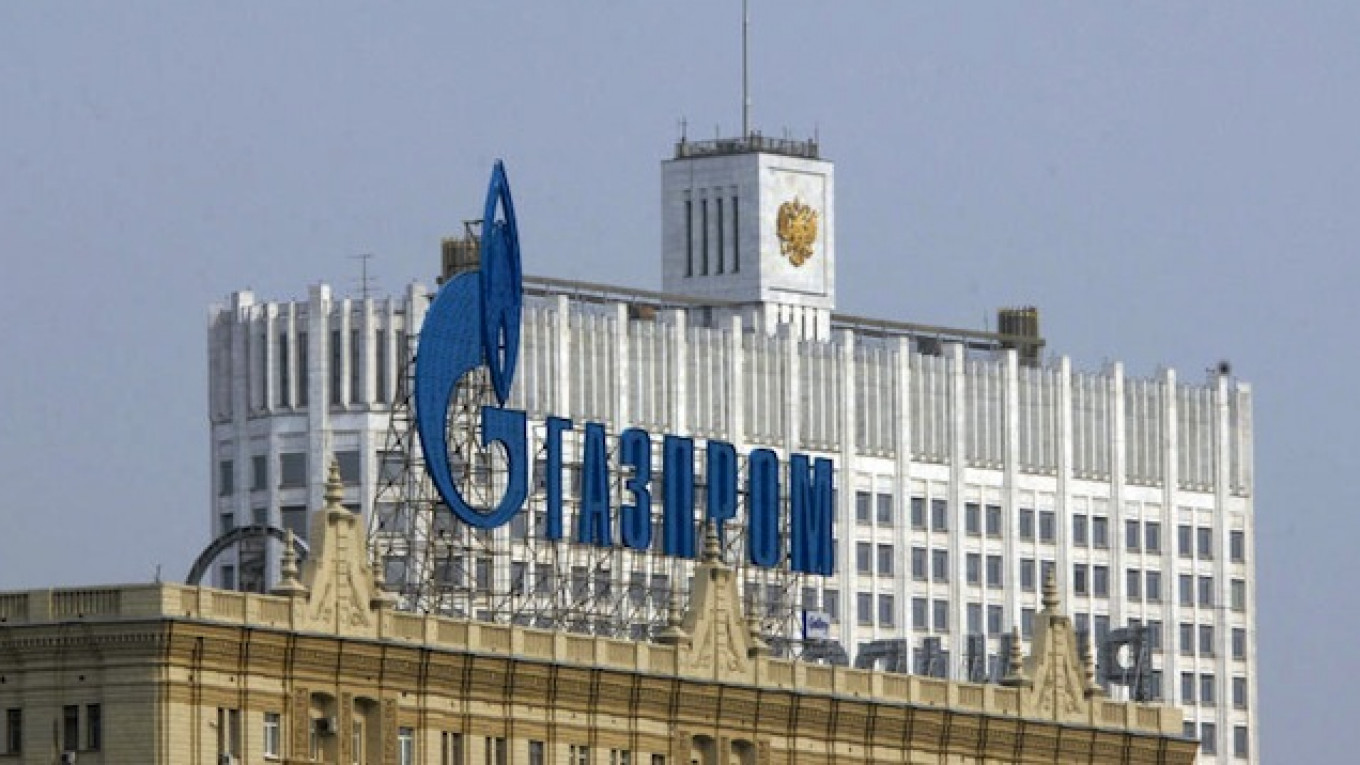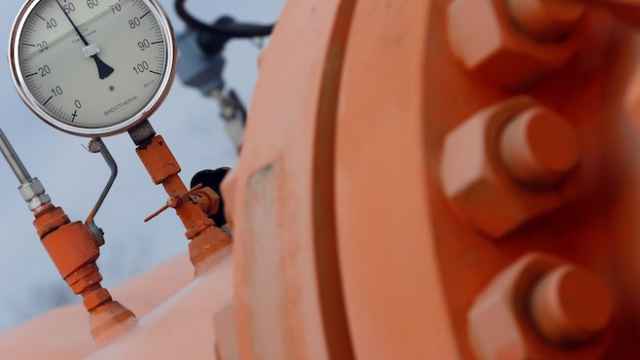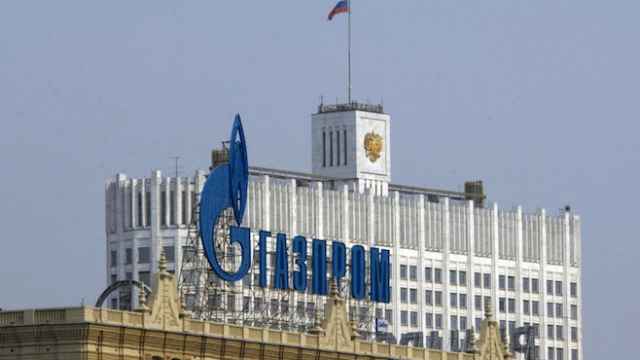Plunging sales to Europe and falling energy prices are not only sapping the revenue of Russia's top natural gas producer Gazprom but also depriving the country's budget of much-needed funds.
Gazprom usually contributes almost one-fifth of federal budget revenue, an amount the Finance Ministry would love to have this year as it tries to build up its resources to weather an economic crisis deepened by Western sanctions over Ukraine.
But a mild winter, better energy efficiency and a reluctance in Europe to take gas from Russia, which is under European Union and U.S. sanctions, have meant some of the gas company's main customers have halved their supplies.
And if prices stay low as they track oil, which has fallen almost 50 percent since mid-last year, Gazprom, and Russia, may lose billions of dollars. The price in Gazprom's contracts is pegged to the oil price with a lag of six to nine months.
Sberbank CIB analyst Alex Fak said the budget may lose around $6 billion a year if gas prices for Europe decline by 35 percent as expected, with possible sales falling by one-third.
A Gazprom spokesman declined to comment on the figure but said falling exports were due to warmer weather and low prices.
Sales to Europe account for more than half of Gazprom's revenue and the company generates around 8 percent of Russia's gross domestic product.
According to European gas operators Nel and Opal, Russian average daily gas supplies to the Nord Stream pipeline via the Baltic Sea have more than halved in Feb. 1-17 to 45 million cubic meters (mcm) from 98 mcm in the same period last year.
Supplies via Ukraine, through which around half of Russian gas traverses to Europe, averaged during the period at 48 mcm, down from 104.4 mcm in the corresponding period of 2014.
Gazprom has also had to deal with the falling price of its long-term contracts, the backbone of agreements with European companies. The Russian economy ministry expects the average Russian gas price for Europe to fall by more than one third, to $222 per 1,000 cubic meters.
"Traders know they'll be able to buy the gas cheaper in April or May and so they're doing arbitrage, they're taking it from storage for now," an Italian wholesale trader said.
Industry experts say gas consumption in western Europe is at multi-year lows due to a weak economy, at least outside Germany.
Europe's biggest utilities have reduced purchases of Russian oil-linked gas by around one quarter, or 50 cubic meters per day, since Jan. 1, flow data on Reuters Eikon shows.
"Two mild winters in a row have curbed use by household customers who are also becoming more energy efficient, switching to low usage condensed boilers," a European market regulatory source said.
Last year, gas-to-power was 9.6 percent of Germany's total power mix in the EU's single biggest energy market, down from 10.5 pct in 2013.
A Message from The Moscow Times:
Dear readers,
We are facing unprecedented challenges. Russia's Prosecutor General's Office has designated The Moscow Times as an "undesirable" organization, criminalizing our work and putting our staff at risk of prosecution. This follows our earlier unjust labeling as a "foreign agent."
These actions are direct attempts to silence independent journalism in Russia. The authorities claim our work "discredits the decisions of the Russian leadership." We see things differently: we strive to provide accurate, unbiased reporting on Russia.
We, the journalists of The Moscow Times, refuse to be silenced. But to continue our work, we need your help.
Your support, no matter how small, makes a world of difference. If you can, please support us monthly starting from just $2. It's quick to set up, and every contribution makes a significant impact.
By supporting The Moscow Times, you're defending open, independent journalism in the face of repression. Thank you for standing with us.
Remind me later.






